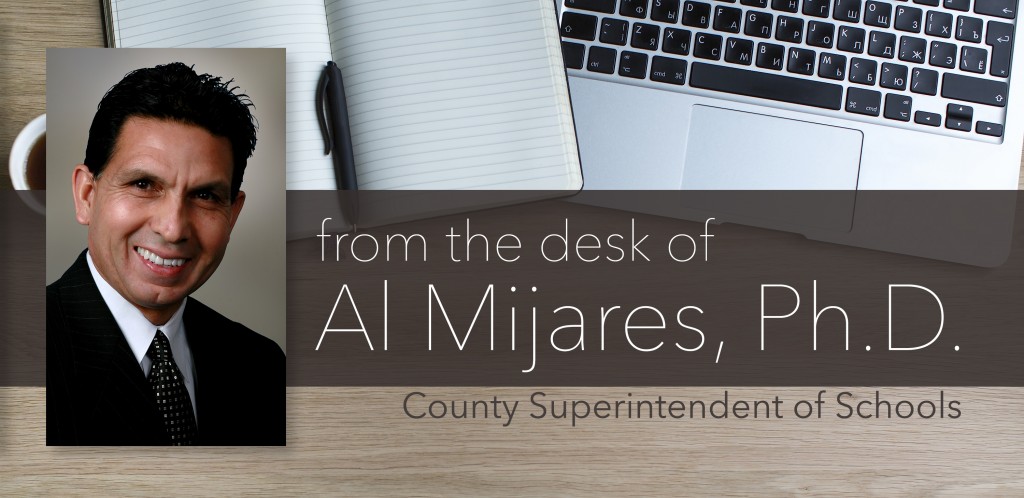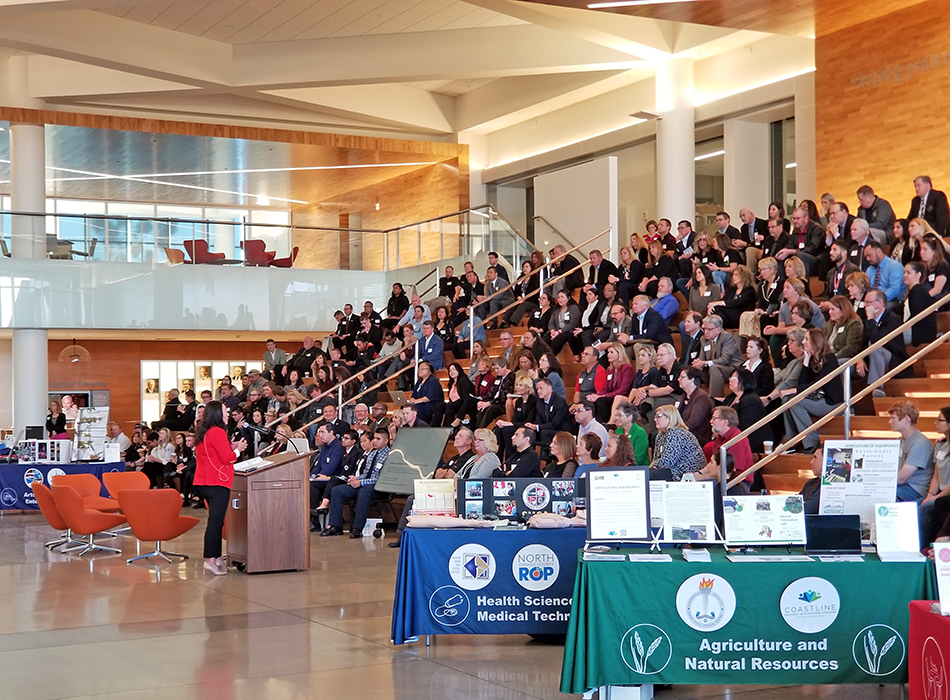On a recent Tuesday morning, an atrium inside the Irvine headquarters of Edwards Lifesciences offered a glimpse of the transformational shift that’s taking place in public education.
Educators mixed with business leaders to talk about meaningful work-based learning opportunities. Student-led exhibits highlighted career paths in critical industry sectors, including health science, engineering, agriculture and hospitality. High-level executives shared their time and their stories with future leaders.
 The occasion was the fourth annual OC Pathways Showcase, which on Nov. 27 celebrated partnerships between educators and industry leaders that are creating classroom-to-career pathways that begin as early as middle school.
The occasion was the fourth annual OC Pathways Showcase, which on Nov. 27 celebrated partnerships between educators and industry leaders that are creating classroom-to-career pathways that begin as early as middle school.
Led by the Orange County Department of Education, OC Pathways was launched in 2014 with a grant from the state, and it’s since expanded to include dozens of school districts, businesses, colleges and local agencies. All are working together to equip students with the competencies they’ll need to thrive in an economy that will look very different than the one that’s dominated the last century.
Automation, artificial intelligence and other high-tech disruptions are dramatically reshaping how we think about work, inducing varying degrees of anxiety. According to a 2017 report by the McKinsey Global Institute, nearly half of the activities performed by employees in today’s global economy have the potential to be automated with technologies that are already available.
Yet, as is noted in a separate analysis released by OC Pathways in partnership with the Orange County Business Council, some jobs will continue to thrive based on the high degree of creative intelligence they require. Examples include civil engineers, lawyers, landscape architects and physicists. Meanwhile, skills such as active learning and complex-problem solving will continue to be in high demand.
In 1965, engineer and businessman Gordon Moore, who would later co-found Intel, famously predicted that computer processing would double about every two years as we figured out how to pack more and more transistors onto a single circuit.

Five decades later, what’s known as Moore’s Law remains a relevant trajectory. Yet as Moore’s own philanthropy will attest, the human experience is not defined merely by our ability to exponentially increase processing power. With education as a key driver, mankind’s success will instead hinge on our ability to marry technology with creativity to meet human needs.
It was fitting, then, that the latest OC Pathways Showcase would take place at Edwards Lifesciences, a leading medical equipment company that is literally saving lives with artificial heart valves and innovative techniques for delivering them.
“Our job is to see what’s coming,” Edwards Lifesciences Vice President of Advanced Technology Jinny Lee told the gathered crowd.
The same can be said of our educational systems, which are increasingly reaching out to industry partners to prepare students to meet an array of human needs, including those we can’t yet envision.
This is not easy work, but it is essential. And it’s arguably never been a more exciting time to be an educator.
